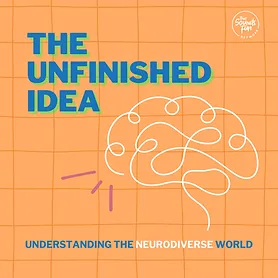Living with ADHD means your brain processes information differently, and that’s part of what makes you unique. Neurodivergence isn’t a flaw to “fix”; it’s simply a different way of experiencing and interacting with the world.
What Neurodivergence Means
The term “neurodivergent” describes people whose brains work in ways that differ from what’s considered “typical.” ADHD, autism, dyslexia, and other conditions all fall under this umbrella. For someone with ADHD, neurodivergence can look like:
- Fast, creative thinking. Your mind may generate ideas quickly, helping you connect concepts others might miss.
- Hyperfocus. When something excites you, you can dive deep and achieve impressive results.
- Dynamic energy. Your enthusiasm can motivate teams and bring fresh momentum to projects.
Challenges and How to Navigate Them
ADHD often comes with difficulties such as distractibility, time blindness, or emotional intensity. These aren’t moral failings; they’re part of how your nervous system works. Strategies that may help include:
- External supports. Timers, calendars, and reminder apps can serve as “extra working memory.”
- Body movement. Walking meetings, standing desks, or short exercise breaks can release restlessness and sharpen focus.
- Compassionate planning. Break tasks into smaller steps and celebrate progress, not just completion.
Embracing Your Strengths
Society often frames ADHD in terms of deficits, but many traits are assets in the right environment. Your curiosity, resilience, and ability to think outside the box are valuable in creative industries, entrepreneurship, and problem-solving roles.
Building a Supportive Community
Connecting with other neurodivergent people—through local groups, online forums, or social media—can provide validation and shared strategies. Therapy, coaching, or medical treatment (including medication when appropriate) can also help you harness your strengths while managing challenges.
Bottom line: ADHD is not a personal failure; it’s a different wiring of the brain. Recognizing yourself as neurodivergent can be empowering. By understanding how your mind works and creating systems that support it, you can thrive on your own terms.

